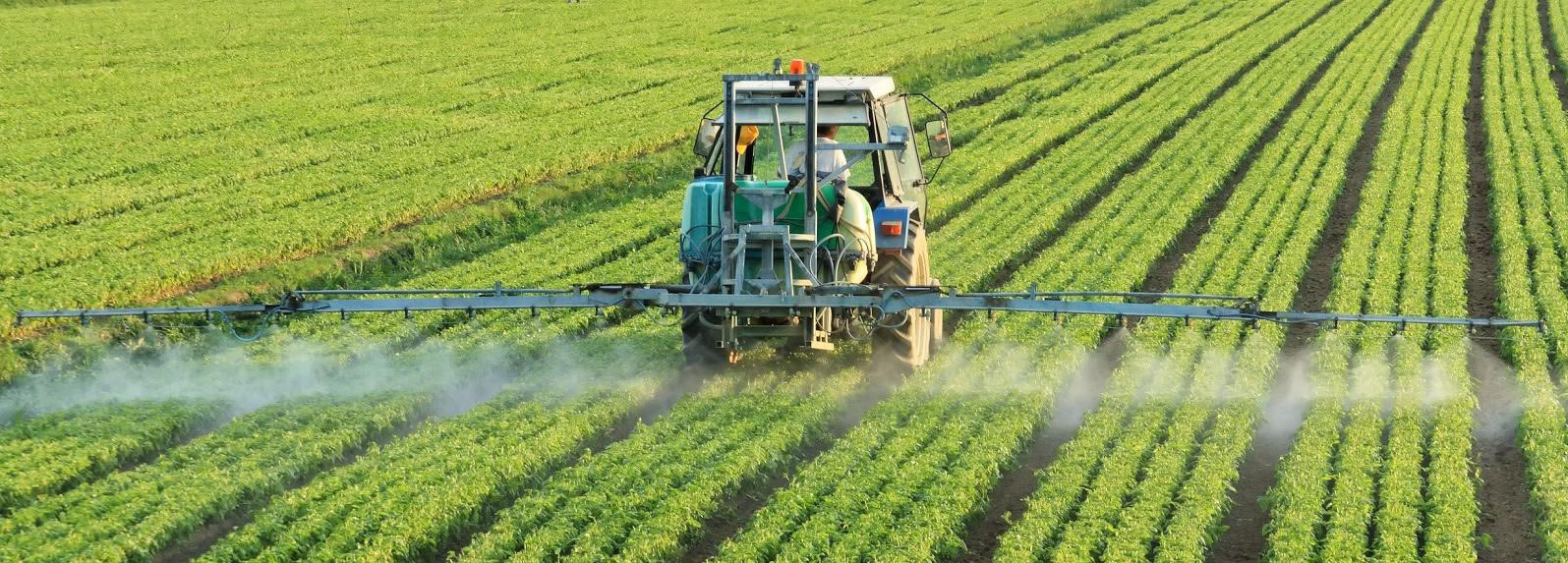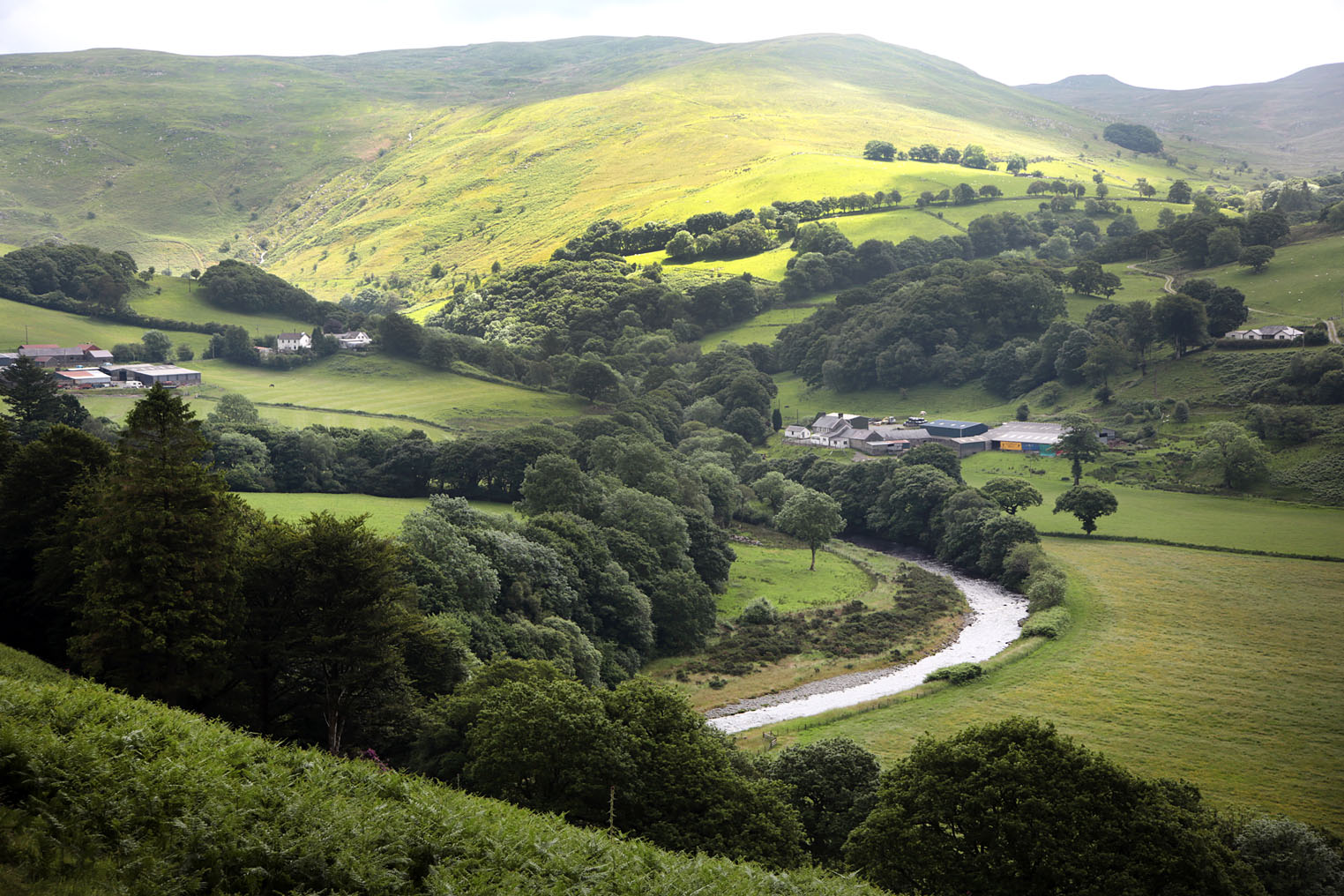Farming
Glyphosate Vote: ‘temporary’ relicensing rejected


The most widely used weedkiller in history: Glyphosate
THE EU COMMISSION failed to secure adequate backing form member states’ experts for its proposed temporary renewal of glyphosate’s license (Jun 13).
The Commission has said glyphosate products could be withdrawn from sale in the EU if no compromise is reached before the license expires at the end of June. Glyphosate is the world’s most widely used herbicide, and the debate over its future – sparked over concerns it may cause cancer – has led to “mounting concern” amongst farm unions, leaders of Britain’s biggest farm groups said ahead of the vote.
Two previous renewal proposals (for 15 and nine years) were rejected by member states in March and May over health concerns, which have attracted a huge amount of public interest. Contradictory findings on glyphosate’s carcinogenicity from EU watchdog EFSA and the World Health Organisation’s cancer research agency IARC have led to intense debate about the correct course of action for EU legislators.
The Commission had proposed a temporary extension of the herbicide’s license pending the results of a review it ordered from the European Chemicals Agency (ECHA), but member states which have backed IARC’s 2015 opinion that glyphosate is a probable human carcinogen refused to support the extension.
According to a German environment ministry spokesperson speaking after Monday’s vote – 20 member states backed the Commission’s temporary relicensing proposal, 7 abstained and only Malta opposed the plans outright.
The decision on glyphosate will now go before an appeal committee again made up of member state representatives, though the Commission will have the final say on relicensing, regardless of the committee’s conclusions.
Reacting on Monday, a spokesperson for the European Crop Protection Association (ECPA), which represents pesticide manufacturers, said: “The ‘no opinion’ from the committee is hugely disappointing. ECPA shares the sentiment voiced by Commissioner Andriukaitis last week when he said decisions should remain based on science, not political convenience. ECPA frequently hears politicians proclaim Europe has the safest food safety system in the world: with this decision all they do is cast doubt on that system, and create fear and confusion amongst Europe’s consumers: the very people the system is designed to protect.
“Failure to re-approve glyphosate would have significant negative repercussions for the competitiveness of European agriculture, the environment, and the ability of farmers to produce safe and affordable food.”
However, Greenpeace EU’s food policy director Franziska Achterberg said: “Extending the glyphosate licence would be like smelling gas and refusing to evacuate to check for a leak. As long as there is no meaningful EU-wide restriction on glyphosate use, we will continue to live in a world that is awash in a weedkiller which is a likely cause of cancer.”
Achterberg said that this year alone the Commission has already extended the licences of 37 chemical pesticides, even in cases where ECHA has raised concerns.
The Greenpeace spokesperson continued, “It’s scandalous, but not unusual for the Commission to keep dangerous pesticides on the market after their licences expire. It has even extended the licence for substances that Europe’s own chemicals agency has identified as highly damaging to our health. What’s new this time is that governments paid attention and didn’t just sign off on the Commission’s proposal.”
An urgent vote on whether to re-approve the authorisation of glyphosate will now go to an appeals committee on 23 June – just a week before the weedkiller’s license is set to expire.
If the committee cannot achieve a qualified majority (more than 55% of states in agreement, representing more than 65% of the EU’s population) the European Commission could in theory choose to extend the license on its own.
Farming
FUW Insurance Services appoints Paul Jameson as non-executive director

Experienced insurance and risk specialist joins board as long-serving director retires
FUW INSURANCE SERVICS LTD, Wales’ leading specialist agricultural insurance broker, has announced the appointment of Dr Paul Jameson as a non-executive director.
Dr Jameson brings extensive experience in insurance and risk management, having worked as an actuary and senior executive within subsidiaries of major global insurers including Allianz, Munich Re, Legal & General and Wakam. He has held chief risk officer roles since 2020.
During his career, Dr Jameson has led multidisciplinary teams spanning actuarial services, risk management, compliance, audit, legal and marketing approvals, giving him broad experience in both strategic oversight and operational governance.
Speaking following his appointment, Dr Jameson, who lives in Colwyn Bay, North Wales, said he was looking forward to supporting the farming sector in Wales.
He said: “I am delighted to join FUW Insurance Services and would like to thank Ann, Guto and the rest of the team for their warm welcome.
“I have been impressed by the passion and commitment of the board to the farming community, and by its ambition to grow and diversify the insurance business. I am keen to support the farming profession and help ensure the continued success of the sector in Wales, particularly during periods of economic and geopolitical uncertainty.
“I hope my experience in the insurance sector will help the business build on its successes and continue to grow, especially as it explores new commercial opportunities and innovative avenues for expansion.”
Ann Beynon OBE, chair of the FUW Insurance Services board, said Dr Jameson’s expertise would be a significant asset to the organisation.
She said: “We are delighted to welcome Dr Paul Jameson to the board. His depth of experience in insurance and his understanding of risk management will be invaluable as we continue to develop and diversify our services.
“Paul’s insight and strategic perspective will help us navigate a changing insurance market, identify new opportunities for innovation and growth, and strengthen the services we provide to our customers.”
Dr Jameson’s appointment follows the retirement of Ken Isherwood, who has stepped down from the board after more than a decade of service.
Paying tribute, Ann Beynon said: “Ken’s integrity, wisdom and deep knowledge of the insurance industry have underpinned much of our success.
“It has been a privilege to work alongside him, and we wish him every happiness in his well-earned retirement.”
Community
Badger Trust launches manifesto ahead of 2026 Senedd elections

THE BADGER TRUST has published a new Cymru Badger Manifesto calling on candidates standing in the 2026 Senedd elections to commit to a science-led approach to bovine tuberculosis (bTB) and to maintain Wales’ current policy of not culling badgers.
The manifesto, released on Wednesday (Dec 10) as part of the charity’s Badgers Belong Here / Mae Moch Daear yn Perthyn Yma campaign, sets out the organisation’s position on badger protection, wildlife crime and bTB control, and urges politicians to reject calls for the reintroduction of culling in Wales.
Badger Trust argues that political decisions taken during the next Senedd term will be critical to the future of badgers, which it describes as culturally and ecologically significant to Wales. The charity says badgers have been present in Wales for more than 250,000 years and remain part of Welsh folklore, place names and rural identity.
Five key commitments
The manifesto outlines five commitments the charity is asking Senedd candidates to support, including defending what it describes as science-led policy on bTB, challenging misinformation in public debate, strengthening enforcement against wildlife crime, recognising badgers as part of Welsh heritage, and supporting local volunteer badger groups.
According to Badger Trust, 140 incidents of badger-related wildlife crime have been recorded in Wales since 2020, which it says highlights the need for improved reporting and enforcement.
The charity also points to the work of six active badger groups across Wales, which it says assist with rescuing injured animals, monitoring setts, recording road casualties and supporting local authorities.
bTB policy in Wales and England
Wales has not carried out widespread badger culling as part of its bTB control strategy, instead focusing on cattle testing, biosecurity measures and herd management.
Badger Trust claims that new herd incidents of bTB in Wales fell by more than 40% between 2010 and 2024, which it attributes to cattle-based controls rather than wildlife intervention.
The charity contrasts this with England, where it says almost 250,000 badgers have been culled over the past decade as part of bTB control programmes. It argues that bTB rates in England remain higher than in Wales and that the evidence does not show culling alone to be responsible for reductions in disease.
Disputed claims over culling
The manifesto challenges the frequently cited claim that badger culling in England led to a 56% reduction in bTB in cattle. Badger Trust says this figure has been misinterpreted and that studies cited in support of culling also involved additional measures such as enhanced cattle testing and biosecurity.
The charity points to statements from researchers and official correspondence which, it says, indicate that reductions in bTB cannot be attributed solely to culling.
Supporters of culling, including some farming groups, continue to argue that wildlife control should remain an option as part of a wider disease management strategy, particularly in areas with persistent infection. The Welsh Government has previously said it keeps its bTB policy under review in line with emerging evidence.
Call to candidates
Nigel Palmer, CEO of Badger Trust, said Wales demonstrated that bTB could be tackled without killing wildlife.
He said: “Wales is a world-leading example of how to address bovine TB through evidence-based policy. The progress made here shows that culling is not necessary, and we urge Senedd candidates to stand by the science.”
The manifesto is available in both Welsh and English and will be circulated to political parties and candidates ahead of the 2026 election.
Farming
Basic Payment Scheme 2025 balance paid to 95% of Welsh farmers

Final year of BPS as transition to Sustainable Farming Scheme begins
The WELSH Government says more than ninety-five per cent of farm businesses have now received their full or balance payment under the final year of the Basic Payment Scheme (BPS), ahead of the introduction of the new Sustainable Farming Scheme (SFS) in 2026.
Announcing the update on Friday (Dec 12), Deputy First Minister and Cabinet Secretary for Climate Change and Rural Affairs, Huw Irranca-Davies, confirmed that over 15,400 Welsh farm businesses have been paid £68.7m. This comes on top of the £160m issued in BPS advance payments since 14 October.
Final round of BPS payments
The Basic Payment Scheme, which has been the backbone of farm support in Wales for a decade, provides direct income support to help farmers plan and manage their businesses. BPS 2025 marks the last year in which full BPS payments will be made before the scheme begins to be phased out.
The Cabinet Secretary said officials would “continue to process the outstanding BPS 2025 claims as soon as possible,” adding that all but the most complex cases should be completed by 30 June 2026.
Payments issued today represent the main balance due to farmers following earlier advances, giving many businesses the cash flow they need during the quieter winter period—traditionally a challenging time in the agricultural calendar.
Shift to Sustainable Farming Scheme in 2026
From 1 January 2026, the Welsh Government will begin rolling out the Sustainable Farming Scheme, a major reform to how agricultural support is delivered. The SFS will reward farmers for environmental outcomes such as habitat management, carbon reduction and biodiversity improvements, alongside continued food production.
The government has argued that the new scheme is essential to meeting Wales’ climate and nature targets while ensuring long-term resilience in the sector. However, the transition has been closely watched by farming unions, who have raised concerns about the administrative burden, income stability, and the speed at which BPS is being phased out.
Mr Irranca-Davies reaffirmed the government’s stance, saying: “This government is steadfastly committed to supporting Welsh farmers to sustainably produce quality food. This is demonstrated today in our payment of the BPS 2025 balance payments and will continue throughout the transition period.”
Sector reaction
Farming unions are expected to scrutinise the detail of today’s announcement, particularly around remaining unpaid cases. Last year, late payments led to frustration in parts of the sector, with unions calling for greater certainty as the industry faces rising input costs, supply chain pressures and continued market volatility.
The move to the SFS remains one of the most significant agricultural policy changes in Wales since devolution. Ministers insist the shift is designed to support both food production and environmental stewardship, while critics warn the transition must not undermine farm viability—especially for family-run livestock farms that dominate rural areas such as Pembrokeshire, Ceredigion and Carmarthenshire.
What happens next
Farmers still awaiting their BPS 2025 balance will continue to be processed “as soon as possible”, the Welsh Government said. Officials will also publish updated guidance on the Sustainable Farming Scheme ahead of its launch.
The coming year will therefore become a pivotal moment for Welsh agriculture, as the long-standing BPS framework—which provided over £200m annually to Welsh farmers—makes way for a new results-based model that will shape the industry for decades to come.
-

 Crime23 hours ago
Crime23 hours agoMilford Haven man jailed after drunken attack on partner and police officers
-

 News4 days ago
News4 days agoDyfed-Powys Police launch major investigation after triple fatal crash
-

 Crime21 hours ago
Crime21 hours agoTeenager charged following rape allegation at Saundersfoot nightclub
-

 Crime3 days ago
Crime3 days agoMan sent to Crown Court over historic indecent assault allegations
-

 Crime2 days ago
Crime2 days agoMan charged with months of coercive control and assaults
-

 Crime5 days ago
Crime5 days agoMan spared jail after baseball bat incident in Milford Haven
-

 Crime3 days ago
Crime3 days agoMilford Haven man admits multiple offences after A477 incident
-

 Crime2 days ago
Crime2 days agoWoman ‘terrified in own home’ after ex breaches court order






















